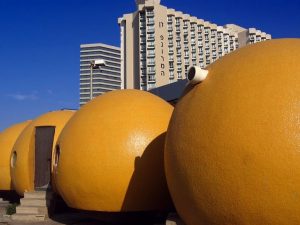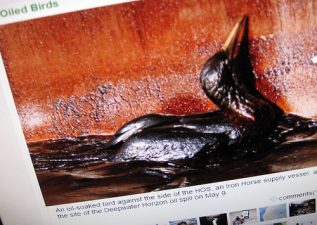 I recently had the opportunity to interview poet laureate and known environmental activist Robert Hass (full interview is here).Hass was in Israel for the “Poetic Natures” conference in Tel Aviv last week, and while he was here he explored some of Israel’s unique environmental features.Among many topics, Hass spoke about the environmental parallels between Israel and California, as well as Israel’s unique responsibility as a flyaway for nearly a billion birds a year. (Hass expressed an interest in seeing the Hula Valley, home to diverse species of birds.)
I recently had the opportunity to interview poet laureate and known environmental activist Robert Hass (full interview is here).Hass was in Israel for the “Poetic Natures” conference in Tel Aviv last week, and while he was here he explored some of Israel’s unique environmental features.Among many topics, Hass spoke about the environmental parallels between Israel and California, as well as Israel’s unique responsibility as a flyaway for nearly a billion birds a year. (Hass expressed an interest in seeing the Hula Valley, home to diverse species of birds.)
“I worry that the environmental movement is always in a defensive position. It’s always arguing against development, or a dam, or economic development someplace, and so then the developers say ‘We’ll be reasonable and take half.’ Ten years later, they take another half.”
Hass also spoke of the way postmodernism has changed our attitude to nature, and how that has affected literature written about nature.In the past, writers assumed that nature revolved around human existence–and this is no longer the case.
“We shouldn’t think the sun is caressing us because it loves us,” says Hass.
It is a change in perspective that Hass believes will present unlimited opportunities for new approaches in art and poetry.
Rock on, Mr. Hass. And please keep writing.
We advocate borrowing, or finding books at the library, but if you must – you can order a Robert Hass book of poems here: Time and Materials: Poems 1997-2005




Mark,
I wrote the article in the Jerusalem Post, which is linked in this post.
I think it’s possible to examine the ecological consequences of our actions without necessarily condemning them outright.
Thanks for reading!
-Ilana
I read an interview with this fellow in the Jerusalem Post. He wanted to know if Israel had considered the environmental impact of the high new fence roughly separating pre-1967 Israel from the Palestinian Authority. The answer is yes– all along the length of the fence there is lessened mobility of wildlife, in the brief stretches where the fence takes the form of a solid wall there is some interference with airborne pollen, and in the urban air of Israel there are far fewer flying body parts of blown-up citizens.